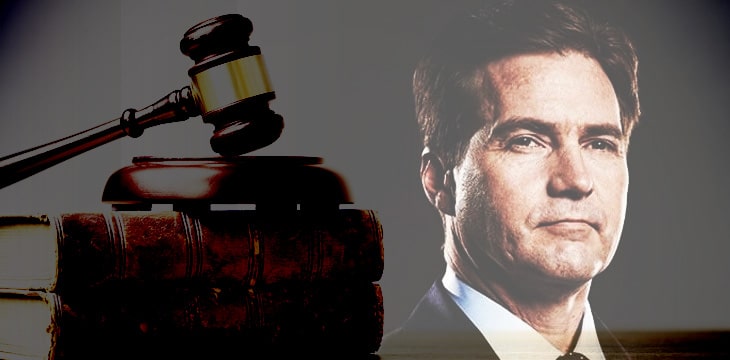|
Getting your Trinity Audio player ready...
|
With the Kleiman vs. Wright trial formally pushed to 9 a.m. on August 31, there are still plenty of pre-trial matters yet to be resolved—all of which have the potential to significantly affect the trial and ultimate outcome of the billion-dollar lawsuit.
May saw a series of significant filings from both parties, each making requests of the Court which range from serving outright judgment on the case before it hits trial, down to the inclusion (or exclusion) of critical evidence which will alter the course of the rest of the proceedings.
Motion for summary judgment, filed by Wright on May 8
First is Wright’s motion for summary judgment, filed on May 8. CoinGeek has covered this motion before, but it was filed by Wright in response to what he calls an elaborate fiction spun by Kleiman in his lawsuit, citing evidence that runs directly counter to Kleiman’s version of events.
Wright and Kleiman’s motions in limine
There were also two motions in limine (meaning a motion to be discussed in front of the judge with no jury present concerning the inclusion of evidence and testimony at trial), one from each of Wright and Kleiman.
Wright’s, filed May 8, argued for the exclusion of Magistrate Judge Reinhart’s prior comments in which he denigrated Wright’s credibility. This is based on a well-established principle that judicial comments as to evidence or witnesses in a case are to be taken as particularly influential on the jury, and thus jeopardising the defendant’s right to a fair trial.
It also argues for the exclusion of evidence relating to Australian Tax Office audits into Australian companies which aren’t a party to the litigation. This is in relation to a trove of documents produced in the case so far which cover a huge number of audits into different companies, and all of the ancillary documents that entails. Wright argues that these have been mischaracterised by the plaintiff and in any case are irrelevant to the case at hand, as well as (at least in some cases) originating from a wholly unverified Gizmodo leak.
Ira’s motion in limine covers wider evidential ground. He asks for the exclusion of seven different items of evidence or testimony:
1. Testimony about the relationship between the Kleiman brothers, which the plaintiffs anticipate will be introduced by Wright in an effort to show the two were estranged (thus undermining Ira’s narrative that despite Dave secretly co-inventing the Bitcoin protocol, he privately relayed that fact to Ira, conveniently explaining how both Ira knows that Dave was involved in a billion dollar partnership yet none of his closest friends had any knowledge of it).
2. The pre-emptive exclusion of any attempt by Wright to contradict facts which he has already ‘judicially admitted to’. In actuality, the plaintiff seeks to force Wright to stand by statements included in a number of Wright’s private correspondence that has been admitted into evidence. The bar for a statement to be taken as judicially admitted is high – it needs to be a ‘deliberate, clear and unambiguous’ admission. The statements Ira is relying on – Wright’s comment that he stands by what is in the relevant documents – doesn’t seem to qualify.
3. The pre-emptive exclusion of any testimony from Wright claiming that his computers have been hacked, or that documents produced in the case have been forged. The notion that Wright has been the victim of hacks has been present throughout the trial, and is reflected throughout the private correspondence between Wright and others, which pre-date the trial by years – not to mention the inclusion of documents in this trial which themselves were obtained from Wright by unauthorized means.
4. The exclusion of documents that Wright produced after the date of discovery cut-off – nearly 2,000 pages’ worth.
5. Prevent Wright from testifying that Dave Kleiman committed suicide. Ira is concerned that Wright will use this to portray the improbability that Dave was in possession of a fortune of Bitcoin, yet would do nothing to preserve, transfer or otherwise secure that fortune if he was planning on killing himself.
6. Similar to the above, the plaintiff is seeking to stop Wright from presenting evidence or testimony about Dave Kleiman’s drug use and social habits. Again, Ira is concerned that Wright will use this to undermine the plaintiff’s characterisation of his brother as a focused programmer capable of co-inventing the Bitcoin protocol, and who would be likely to leave his fortune of Bitcoin untouched.
7. Exclusion of testimony as to Wright’s ‘childhood trauma’ and autism. The plaintiffs are anticipating that this will be offered as a reason for any inconsistencies in Wright’s statements over the years about matters relevant to the case.
Kleiman’s Daubert motion to exclude Wright’s expert witnesses, filed May 18
Kleiman also filed a Daubert motion (a category of a motion in limine aimed at excluding unqualified testimony before the jury). These are aimed at four expert witnesses that Wright seeks to introduce into the trial:
1. Dr Ami Klin, a licensed clinical psychologist who will testify that he has diagnosed Wright with autism, and the way in which that condition affects Wright’s behaviour;
2. Kevin Madura, a computer scientist who will testify on whether Dave Kleiman had the technical ability to have played the role in the invention of the Bitcoin protocol that Ira claims he did;
3. Frank Norwitch, a handwriting authentication expert who it is assumed will testify that various documents produced in the case contain forged signatures of Wright’s; and
4. Dr D Stewart MacIntyre, a licensed physician and infectious disease specialist who will give his opinion on the medical status of Dave Kleiman at and before the time of his death.
Kleiman’s motion for partial summary judgment, filed May 18, and Kleiman’s motion for sanctions, filed May 21
Kleiman has also asked that the Court pre-emptively rule on the affirmative defences raised by Wright in response to the lawsuit. These include Wright’s defence that the plaintiff’s cause of action is time-barred by the statute of limitations, that the Court has no jurisdiction to hear the case as it is precluded by the Australian judgments on the W&K assets, and that the Court does not have jurisdiction over the defendant himself.
He also filed a motion for sanctions, up to and including the Court entering default judgment against Wright for what he calls a sustained pattern of fraudulent behaviour on the part of Wright. Wright’s reply slammed Ira’s request as overreaching and inevitably obstructing his right to a fair trial.
Next steps
All replies to these motions were due from each party by June 1 or 2. With both sides having had the opportunity to state their case, we can expect a run of important judgments at any moment, which will significantly affect the conduct of the trial and might even bring the lawsuit to a resolution before it sees a jury.
In summary, these are the most significant motions that still need to be ruled on in advance for the August trial:
• Wright’s May 8 motion for summary judgment;
• Wright’s May 8 motion in limine;
• Kleiman’s May 18 Daubert motion;
• Kleiman’s May 18 motion in limine;
• Kleiman’s May 18 motion for summary judgment;
• Kleiman’s May 21 motion for sanctions
Other than those motions, there are also the more procedural landmarks between now and the trial: the jury will be briefed and both sides will have the opportunity to review and object to selected members of the jury on August 17. Assuming the verdict on the various outstanding motions hasn’t precluded the trial from taking place by then, all that will be left is for the jury trial to begin.

 02-12-2026
02-12-2026 




